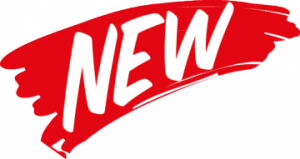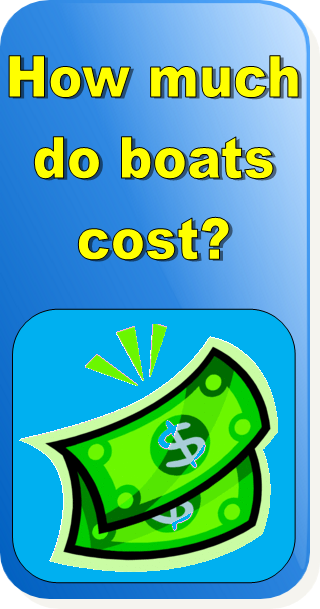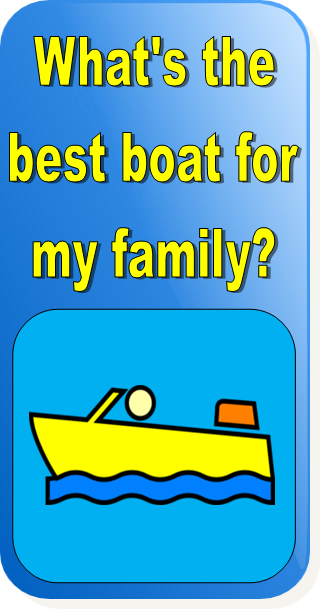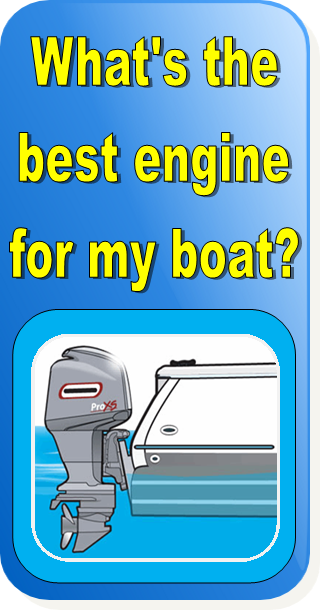Boater’s Learning Center
Just bought a boat from us? Please click here to read our Welcome Aboard Letter.
New to boating? Our Boater’s Learning Center is filled with useful information from basic to advanced. One convenient place to help you learn more, feel confident and get the best out of your boating adventures!
FIRST-TIME BOAT OWNERS: HOW TO GET STARTED
Now that you’ve bought your boat, here are a few details to consider before you turn the key. For all you first time boat owners out there, follow these simple steps to help ease into ownership.
First-Time Boat Owner Checklist
Insuring Your Boat
You need to insure your boat, both for liability and for damage to the boat, and in that regard boat insurance is similar to a policy that covers your automobile. But there are some types of coverage that are specific to boats. For example, a policy with specific fuel-spill liability protects you from clean-up claims or third-party damage caused by the accidental discharge of oil or fuel, if you boat were to sink in a marina. If you have an accident while towing, your boat policy pays to repair or replace the trailer. If your trailer causes injuries to people or damage to property your auto policy should cover the liability. Check both policies to make sure you are covered. Other factors to consider are special requirements for boats in hurricane zones, and boats leaving U.S. waters.
To learn more, read Insuring Your Boat.
Trailering Your Boat
Trailering you boat makes it possible to visit new bodies of water, but for many new boat owners towing safely requires another new skill set that is part of boat ownership. The first item to check is that your tow vehicle is rated to tow the boat you will buy. Check the vehicle owner’s manual carefully to find the maximum tow rating, and the Gross Combined Vehicle Rating (GCVR), which is the weight of the tow vehicle and the boat and trailer; and that weight should include the weight of boat fuel, water and gear. Don’t buy a boat only to discover you’ll need a new truck to tow it.
For more information on towing, visit our Boat Towing & Trailering guide.
Launching & Retrieving
The boat launch ramp has its own etiquette, developed to keep things moving smoothly even on the busiest weekend morning. Knowing the drill will help you keep your stress level down and get your day on the water off to a great start.
For tips on backing down the ramp and launching check out How to Launch a Boat. And remember: practice makes perfect.
Boat Storage
You might store your new boat on its trailer, but where will you park it? Not all communities permit boats to be parked-long-term in a residential driveway. Will your boat trailer fit in your garage? Maybe you need a trailer with a swing-away tongue. There are many other boat-storage options, from a dry stack valet service to mooring in a marina.
For ideas on storage go to Boat Storage: What Are My Options?
Basic Boat Maintenance
Powerboats and personal watercrafts (PWCs) will require at least annual basic engine maintenance, usually an oil and filter change and a fuel filter change, a change of gearcase lubricant, and perhaps propeller inspection. If you live in a cold climate the boat will need to be “winterized” for off-season storage.
Learn more in our Maintenance guide.
Basic Equipment
Of course, you’ll need a life jacket (also called a personal flotation device, or PFD) for every person onboard, but what other items are you required to keep on the vessel? Check out our Boat Safety Checklist & Safety Equipment. There are other items that often are not part of a new-boat purchase, including dock lines, and fenders to protect the side of the boat when it’s docked.
Departure Checklist
A pilot always files a flight plan before takeoff. You should file a “float plan” with family or friends ashore before heading out for the day, just so someone knows where you are headed and when you expect to return. Check out our Pre-Departure Checklist for more “pre-float” ideas designed to help make your day on the water safe and enjoyable.
Fueling
Gas gauge getting low? It’s time to re-fuel your boat, which presents two areas of concern. The first is putting the correct fuel in your boat. Consult your owner’s manual for any fuel octane requirements, and note especially that marine engines may not use motor fuel with more than 10 percent ethanol (E10). To learn more about issues with ethanol and marine engines, go to Choosing the Right Fuel and Oil for your Marine Engine. You’ll also want to refuel while avoiding spills, even a few drops. Learn more by reading Clean Boating: Best Practices for Boaters.
Operating Your Boat
If you buy a new boat, a good dealer should give you a thorough walk-through of the boat to show you how all the systems work. Some dealers will even take you out on the water for a demonstration run. But there’s more to operating a boat than knowing how to start the engine and steer the wheel.
Get a solid foundation on boat handling and docking, rules of the road and navigation by taking a boating education or safety course, as offered by your state or through one of the resources listed on How to Get a Boating License.
10 TIPS FOR FIRST TIME BOATERS:
If you just bought a new boat or you’re thinking about buying one for the first time, or if you’re renting a boat for the day or tagging along on a friend’s boat, we have some good news for you: on top of being flat-out fun, research has proven that boating is good for your health and mind. But like any new experience, someone who’s not an experienced boater may have a bit of anxiety over casting off the lines for the first time. Never fear, dear new-to-boating boater—we’re here to help.
1. Keep It Safe
You knew that was coming, didn’t you? Boating is an incredibly low-risk activity, but like anything, the fun stops abruptly if someone gets hurt. Pay attention as you take your boating safety course, and spend some time perusing our Boating Safety Guide before you shove off the dock.
2. Decide What Activities You Want to Try
With the safety stuff out of the way, prepare yourself to have some serious fun. We mean actually prepare yourself—check out 10 Fun Things to Do on a Boat, and think about which sorts of activities are likely to be embraced by entire family. You might even want to call a family meeting and gather around the kitchen table to discuss all the options. When you’ve decided on a plan of action, make a list of any boating accessories you may need to be fully prepared for all the grin-generating wave-hops, laughter-inducing tube-towing, and/or smile-causing fish-catching that’s about to come.
3. Check the Weather
Pick your weather carefully. Although we’d all like to go boating each and every time the schedule allows, it is an activity that Mother Nature has a big impact on. If a stiff breeze or thunderstorms are in the forecast, it’s best to keep your powder dry and wait for a better window of opportunity.
See Weather Safety Tips for Boaters, to gain some insight into what does and does not make for good boating conditions.
4. Remember to “Walk Before Your Run”
Ease into the boating lifestyle with short trips that don’t take you too far afield. You don’t need to start off with a long-distance cruise or an overnight camping adventure right off the bat. Most people will be best off if they build up to bigger trips by starting with smaller, shorter ones that help build confidence. You’ll quickly figure out what sorts of provisions and gear are best to keep on hand, how to respond to different situations that may arise out on the water, and how long the crew enjoys different activities before a change of pace is due. As any parent can probably guess, this is particularly important if you have kids.
5. Life Jackets for Everyone!
Pick out life jackets that are comfortable, not because they’re the cheapest option available. Again, this is particularly important if you have kids. Ill-fitting or poorly designed life jackets will grow less and less comfortable as the day wears on, and there are so many types and choices these days that it’s quite easy to find a comfy life jacket for anyone of any size or age. You’re wondering how you’ll figure out which is best? No problem—check out Life Jackets, Vests, & PFDs: How to Choose the Right Fit.
6. Plan Ahead: Use a Pre-Departure Checklist
Plan in some extra time both before and after the trip. When you’re trying something new you don’t want to be rushed, and there will be some set-up time needed to stow the gear, prep the boat for launch, and go through your pre-departure checklist. When you return to the dock, you’ll want to allow extra time for securing the boat, cleaning it up, and washing it down. Keep this in mind as you decide when to start your trip and when you end it, so you don’t end up under any pressure to hurry. Take Me Fishing also has another great resource to explore, “Use this Checklist Before & After Every Outing.”
7. Slow Down for Waves
This may sound a bit simplistic, but the truth of the matter is that after hopping over a few small waves, most new boaters leave the throttle open for larger and larger ones—right up until they hit the one so big that it hurts. Remember that wave impacts are often worse for the passengers than they are for the captain, who is more likely to see the wave coming and be prepared for the impact. So if you’re running the boat and you feel a thump, other people aboard may have felt a slam or a bang.
The solution is quite simple: pull back on the throttle, before the boat hits big waves. Check out our How to Drive a Boat guide, for more info on what to look out for when you’re at the wheel.
Still Have Questions? Contact Us And We’ll Connect You With All The Resources You Need For Your Best Boating Experience Ever.
Our customers tell us they research these questions first…
|
|
What kind of boat is best for my family?
How much do boats cost?
What is the best engine for my boat?
What things can I do with a boat in Florida and when can I do them?
What size and type of vehicle will I need to tow my boat?
What can we help you with?
BOATER’S LEARNING CENTER
-
New to boating? Just bought a boat?.. Know Before You Go!
- GENERAL KNOWLEDGE
- Glossary of Boating Terms
- 50 of the Best Boating Tips & Tricks EVER!
- Boater’s Visual Maintenance Checklist.
- Tips for Towing a Boat Trailer.
- What is a Self Bailing Boat?
- First Aid – Know before you go!
- Boat Hull Types explained.
- General Boating Knowledge Resource.
- Outboard Motors Use Born on Date Not Model Year.
- HOW TO…
- How to Buy a Deck Boat
- How to Buy a Pontoon Boat
- How to Enjoy Towing Water Sports with Your Boat
- How to Remove Bad Marks from your Credit Report

- How to Improve your Credit Score Step by Step

- Tips for Towing a Boat Trailer
- How to Choose the Right Sacrificial Anode (zinc) for Your Boat
- 10 Common Mistakes Boat Buyers Make
- Control Galvanic Corrosion
- How Outboard Motors Work

- LEARN THE RULES OF BOATING IN FLORIDA
- Read the Study Guide.
- Learn about Florida Boating Laws.
- Access FWC brochures.
- SAFETY EQUIPMENT FOR RECREATIONAL VESSELS
- For Vessels from 26 feet to under 40 feet.
- For Vessels from 16 feet to under 26 feet.
- FISHING LICENSE INFORMATION
- Frequently Asked Questions (FAQs)
- FIND A BOAT RAMP
- Listing of Florida Boat Ramps.
- Tips for new boaters launching or docking.
- CHECK THE WEATHER
- Weather for Fort Pierce Florida.
- Weather for Pompano Beach Florida.
- Weather for Melbourne Florida.
- TITLE & REGISTRATION
- Florida Title & Registration Resources.
- RECIPES
- The Best Original Barbados Rum Punch
-
VIDEO HOW TO’S

Want more information? Visit our Posts page here.
This is our comprehensive boater’s learning tool. Please find the answers you need or call us at 888 278-1991 today.





